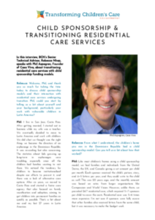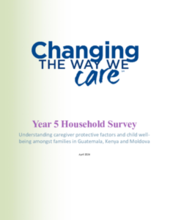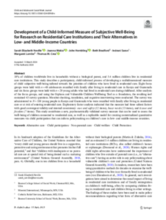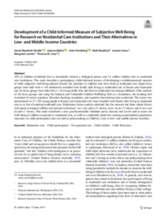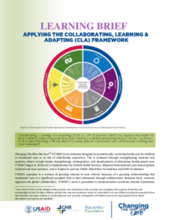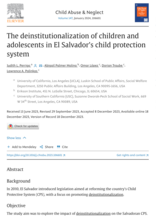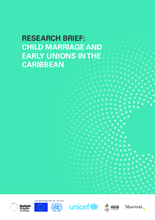Displaying 21 - 30 of 379
In this interview, BCN’s Senior Technical Advisor, Rebecca Nhep, speaks with Phil Aspegren, Founder of Casa Viva, about transitioning residential care services with child sponsorship funding models.
This webinar was a panel conversation hosted by the CPC Learning Network, ChildFund Alliance, the Program on Forced Migration and Health at Columbia University, and the Watchlist on Children and Armed Conflict that brought together a panel of experts to discuss the root causes leading to recruitment and involvement in activities of armed groups as well as the current context in countries such as Sudan, Colombia, Syria, Iraq, Yemen, and more.
During this webinar, participants will focus on identifying effective strategies that support local organizations and employ a “whole family” or “two-generation” approach to early childhood development and protection for children on the move and their families.
The Changing the Way We Care (CTWWC) initiative conducted its Year 5 Household Survey as part of its commitment to building evidence around outcomes for children and families in the context of care reform. The second round of this survey in Kenya and Guatemala, and first round in Moldova, aimed to understand the impact of CTWWC interventions on children and families transitioning from residential care to family-based alternatives or receiving support to prevent separation.
This study describes a participatory, child-informed process of developing a multidimensional measure of child subjective well-being tailored towards the priorities of children who have lived in residential care. The survey was administered to 180 young people in Kenya and Guatemala who were reunified with family after living in residential care or at risk of entering residential care.
This study describes a participatory, child-informed process of developing a multidimensional measure of child subjective well-being tailored towards the priorities of children who have lived in residential care. The study was conducted with focus groups in Kenya and Guatemala.
A federal judge is expected to rule soon on whether the government must provide shelter, food and medical care to minors while they await processing.
Since care reform is a long and complex process, requiring collaboration between many diverse actors, with different change pathways in diverse contexts, the Changing the Way We Care initiative set out to learn from different demonstration countries, build national and regional knowledge, and reinforce global momentum for family care. This learning brief describes some of that journey.
This brief shares how the initiative used CLA related to the social service workforce strengthening and case management.
The purpose of this study was to explore the impact of deinstitutionalization on the Salvadoran Child Protection System.
This research brief summarizes what is already known about child marriage and early unions (CMEUs) in the Caribbean, complemented by the findings of research commissioned by UNICEF in the framework of the Spotlight Initiative Caribbean Regional Programme and conducted in six Caribbean countries: Antigua and Barbuda, Belize, Guyana, Haiti, Suriname and Trinidad and Tobago.

